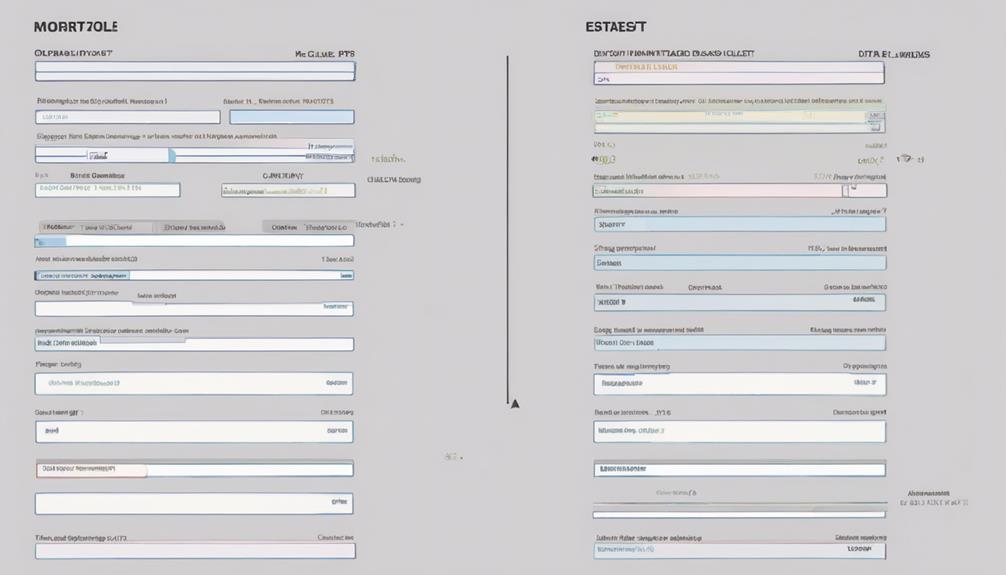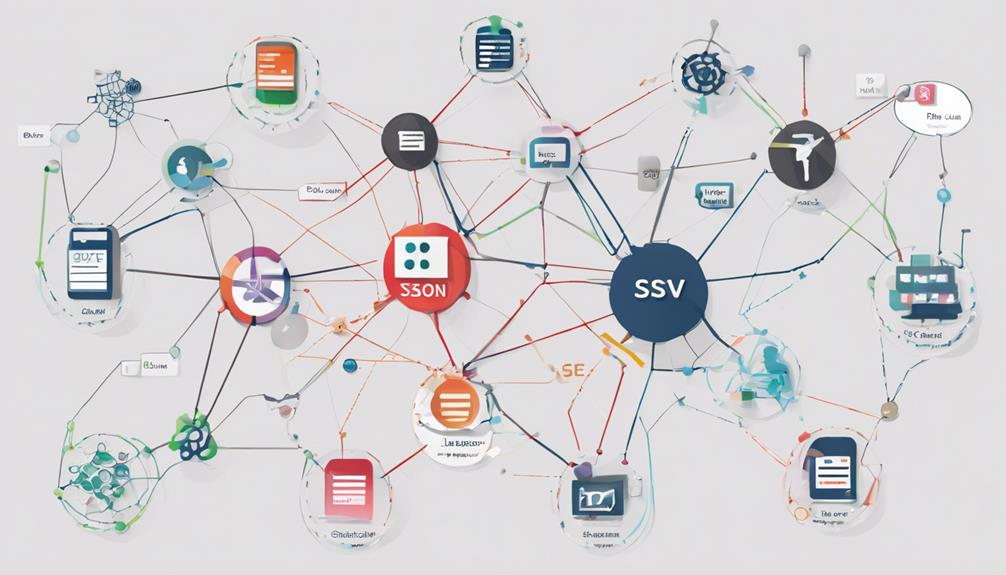When considering how to choose the right database data formatting service, there are key factors beyond just the surface level to weigh in your decision-making process. You might not be aware of the intricate details that can significantly impact the quality of your database management. By understanding the nuances of expertise, costs, technology compatibility, security measures, and customer reviews, you will be able to make a well-informed decision that aligns with your database needs. Each aspect plays a vital role in ensuring the efficiency and effectiveness of your chosen data formatting service.
Evaluate Expertise
When choosing a database data formatting service, the first crucial step is to evaluate the expertise of the service provider. Skill assessment and experience evaluation are key factors to consider in this process. Begin by examining the service provider’s skill set. Look for evidence of proficiency in database management, data formatting techniques, and familiarity with various database systems. A competent service provider should be able to demonstrate a deep understanding of data structures, normalization processes, and data manipulation techniques.
Next, evaluate the level of experience the service provider brings to the table. Consider how long they have been in the industry and the scope of projects they have handled. Experience is often a strong indicator of reliability and proficiency. A seasoned provider is likely to have encountered a wide range of data formatting challenges and developed effective solutions over time.
Consider Costs
To effectively evaluate a database data formatting service, it is essential to consider the costs involved in engaging their services. Conducting a thorough cost analysis and budget planning will help you make an informed decision. Here are some key points to consider:
- Service Pricing: Look into the pricing structure of the database data formatting service. Determine if they charge a one-time fee, a subscription-based model, or based on the volume of data processed.
- Additional Costs: Inquire about any hidden or additional costs that might arise during the engagement. Ensure you have a clear understanding of what is included in the base price and what may incur extra charges.
- Value for Money: Evaluate the service’s pricing in relation to the features and benefits they offer. Consider if the cost aligns with the value you will receive from their data formatting services.
- Scalability: Assess how the costs may vary as your database needs grow. Ensure that the service can scale with your requirements without incurring exorbitant expenses.
Assess Technology Used
Selecting a database data formatting service involves assessing the technology utilized by the service provider. When evaluating a service, consider the software compatibility it offers. Ensure that the service can seamlessly integrate with your existing systems to facilitate smooth data transfer and processing. Data integration is crucial for maintaining operational efficiency and reducing the risk of errors or data inconsistencies.
Another essential aspect to scrutinize is the service’s approach to data quality. Look for a provider that prioritizes data accuracy, completeness, and consistency. A reliable data formatting service should have mechanisms in place to enhance data quality throughout the formatting process, ensuring that the output is reliable and error-free.
Additionally, evaluate how the service provider addresses performance optimization. Optimal performance is vital for efficient data processing and retrieval. Choose a service that employs technologies and strategies to enhance processing speed, reduce latency, and improve overall system performance. By prioritizing software compatibility, data integration, data quality, and performance optimization, you can select a database data formatting service that meets your specific needs effectively.
Check Data Security Measures
For ensuring the protection and confidentiality of your data, it is imperative to thoroughly examine the data security measures implemented by a database data formatting service. When considering a service provider, pay close attention to the following key aspects:
- Data Encryption: Check if the service offers robust encryption methods to safeguard your data from unauthorized access and cyber threats.
- Access Control: Ensure that the service implements strict access control mechanisms to regulate who can view, edit, or manipulate the data within the system.
- Regular Security Audits: Look for a service provider that conducts regular security audits to identify and address any vulnerabilities in the system promptly.
- Compliance Standards: Verify if the service complies with industry-specific data security regulations and standards to guarantee the protection of your sensitive information.
Look for Customer Reviews
When considering a database data formatting service, it is essential to look for customer reviews that can provide valuable insights into the quality of service and customer satisfaction levels. Customer reviews offer firsthand experiences that can help you gauge the reliability and performance of a data formatting service. Look for feedback from trustworthy sources to ensure the credibility of the reviews.
By analyzing customer reviews, you can gain valuable information about the service provider’s reputation management. Positive reviews highlighting excellent customer service, reliability, and data accuracy are indicators of a trustworthy database data formatting service. On the other hand, negative reviews that consistently mention issues like data security breaches or poor communication should raise red flags.
Take the time to read through a variety of customer reviews to get a comprehensive understanding of the service provider’s strengths and weaknesses. By leveraging customer feedback from reputable sources, you can make an informed decision when selecting a database data formatting service.
Frequently Asked Questions
Do They Offer a Free Trial or Demo?
Wondering if they offer a free trial or demo? It’s wise to check for cost comparison, read customer reviews. Make an informed decision. Look for value, reliability. A trial can reveal if it suits your needs.
What Types of Databases Do They Support?
They support various database types, ensuring data compatibility and integration capabilities. Their service offers scalability and flexibility to accommodate your evolving needs. Make sure to confirm specific database support to align with your requirements.
Is There a Minimum Amount of Data Required?
To ensure data quality and smooth data integration, most services have a minimum data requirement. They use this threshold to optimize their processes effectively. Make sure your data meets this minimum for efficient service utilization.
Can They Handle Data From Multiple Sources?
Absolutely! They can handle data from multiple sources with ease. Their data integration capabilities are top-notch, ensuring seamless cross-platform compatibility. You’ll be amazed at how efficiently they manage diverse data inputs.
Do They Provide Ongoing Technical Support?
Yes, they provide ongoing technical support to ensure customer satisfaction. You can access training resources for continuous improvement. Their commitment to assisting you post-service helps maintain a high level of data formatting efficiency and effectiveness.



